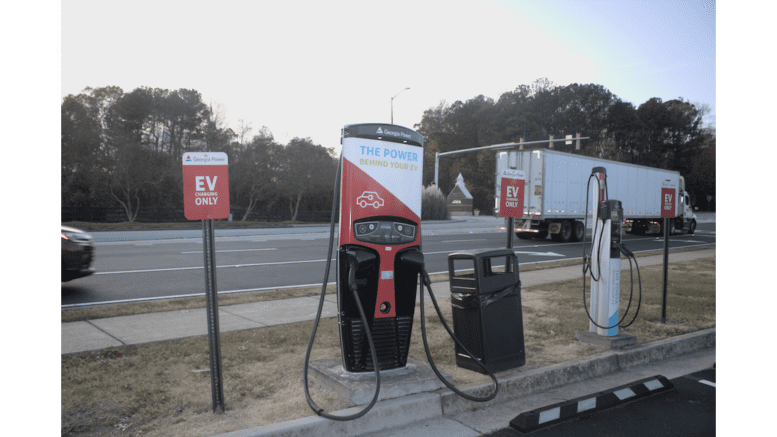by Patrick King, Georgia Recorder [This guest commentary first appeared in the Georgia Recorder, republished with permission]
December 22, 2022
In recent months, Georgia has made major strides to position itself as the Silicon Valley of electric transportation and lead the region in electric vehicle (EV) manufacturing investment and jobs. Still, our state appears to be hedging its bets on an electric transportation future and needs to do more to put its money where Georgia’s mouth is.
We can improve air quality for all Georgians by replacing diesel-burning vehicles with electric alternatives, especially in communities already overburdened by air pollution. Doing so will also strengthen our state’s already significant and growing electric transportation sector.
A perfect example of what’s possible is provided by Florida, which recently announced a major step to electrify its public transportation sector, awarding funding for hundreds of electric transit buses and school buses. Georgia has $20 million that could be spent electrifying transportation and supporting the state’s economic future.
In 2016, states received a $2.7 billion legal settlement between the federal government and Volkswagen over the car manufacturer’s illegal installation of computer software designed to cheat federal emissions tests. The money can be used to replace or upgrade older diesel engines with newer, cleaner technology and install charging infrastructure for light-duty electric vehicles.
Georgia’s share was almost $64 million, and the state adopted plans to get newer diesel transit buses in the Atlanta area and change to all-electric buses and charging infrastructure at Hartsfield Jackson Airport. But funds have been allocated only to the first program, and so far none of the funds have been directed for EV infrastructure.
Meanwhile, Florida has put its $166 million in settlement funds toward projects to electrify buses, secure federal diesel emission reduction grants, and fund light-duty charging infrastructure for electric vehicles. Florida’s plans also include installing DC Fast Chargers near interstate highways and replacing diesel school buses with electric models,
Georgia’s funds, which are currently going only to replacement diesel buses, can be put to better use to strengthen our charging network to encourage EV adoption. Although federal programs require DC Fast Chargers to be placed in 50-mile increments along established Alternative Fuel Corridors, Georgia currently has just 12 stations that meet this requirement and needs 40-45 more to complete its network.
Considering that there is a 20% cost match component, why not use the remaining settlement funds to cover this and make the best use of federal funds?
Georgia could also allocate funds to ensure that rural Georgians aren’t left behind in this technological shift. The existing Alternative Fuel Corridors cover many of our main interstate arteries but leave significant gaps in rural areas, particularly important for evacuation routes amid increasingly potent weather systems.
By using a smart approach to allocating this new funding in the most beneficial ways, Georgia can secure its economic future as a hub for electric transportation technologies. Florida doesn’t have anywhere near the manufacturing investment or workforce we have secured for an all-electric future. So will we let them lead, or will we step up?
Georgia Recorder is part of States Newsroom, a network of news bureaus supported by grants and a coalition of donors as a 501c(3) public charity. Georgia Recorder maintains editorial independence. Contact Editor John McCosh for questions: info@georgiarecorder.com. Follow Georgia Recorder on Facebook and Twitter.

